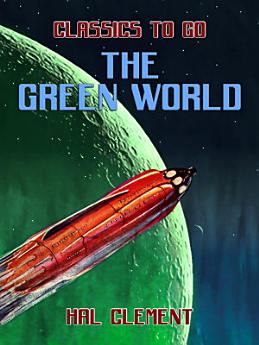The Green World
Jul 2020 · Otbebookpublishing
Ebook
65
Pages
family_home
Eligible
info
reportRatings and reviews aren’t verified Learn More
About this ebook
Four scientists, one guide--and a dangerous beast following their trail. Nothing unusual from the looks of things, except that they are all in a planet far away from Earth. Robin Lampert, Take Mitsuitei, Hans Krendall and Ndomi Sulewayo, and their guide John McLaughlin, get together to scour the wilds of Viridis and take what scientific information the land can offer. They discover puzzling yet wondrous mysteries, yet little do they know that the the land itself is unwilling to give them the answers. (Goodreads)
About the author
Hal Clement, born Harry Clement Stubbs on May 30, 1922, in Somerville, Massachusetts, was a pioneering figure in the realm of hard science fiction. With a background in astronomy and chemistry, Clement brought an unparalleled level of scientific rigor to his storytelling, captivating readers with meticulously crafted extraterrestrial environments and plausible technological advancements. His education at Harvard University and his service as a B-24 pilot during World War II deeply influenced his methodical approach to writing.Clement's debut in the science fiction world came in the early 1940s, and he quickly established himself as a master of the genre. His works are celebrated for their intellectual depth and the seamless integration of scientific principles into compelling narratives. This unique blend earned him a dedicated following and a lasting legacy in the science fiction community.One of Clement's most revolutionary ideas was the concept of "world-building" based on real scientific principles, which has inspired countless contemporary writers. His influence is evident in the works of authors like Arthur C. Clarke and Greg Bear, who have acknowledged Clement's impact on their own explorations of science fiction.Despite his acclaim, Clement was not without controversy. His insistence on scientific accuracy sometimes led to debates within the literary community about the balance between creativity and realism in science fiction. Nonetheless, his contributions have cemented his status as a cornerstone of the genre.Clement's legacy is not just in his stories but in the way he challenged readers and writers alike to think critically about the universe and our place within it. He passed away on October 29, 2003, leaving behind a body of work that continues to inspire and educate.
Rate this ebook
Tell us what you think.
Reading information
Smartphones and tablets
Install the Google Play Books app for Android and iPad/iPhone. It syncs automatically with your account and allows you to read online or offline wherever you are.
Laptops and computers
You can listen to audiobooks purchased on Google Play using your computer's web browser.
eReaders and other devices
To read on e-ink devices like Kobo eReaders, you'll need to download a file and transfer it to your device. Follow the detailed Help Center instructions to transfer the files to supported eReaders.








